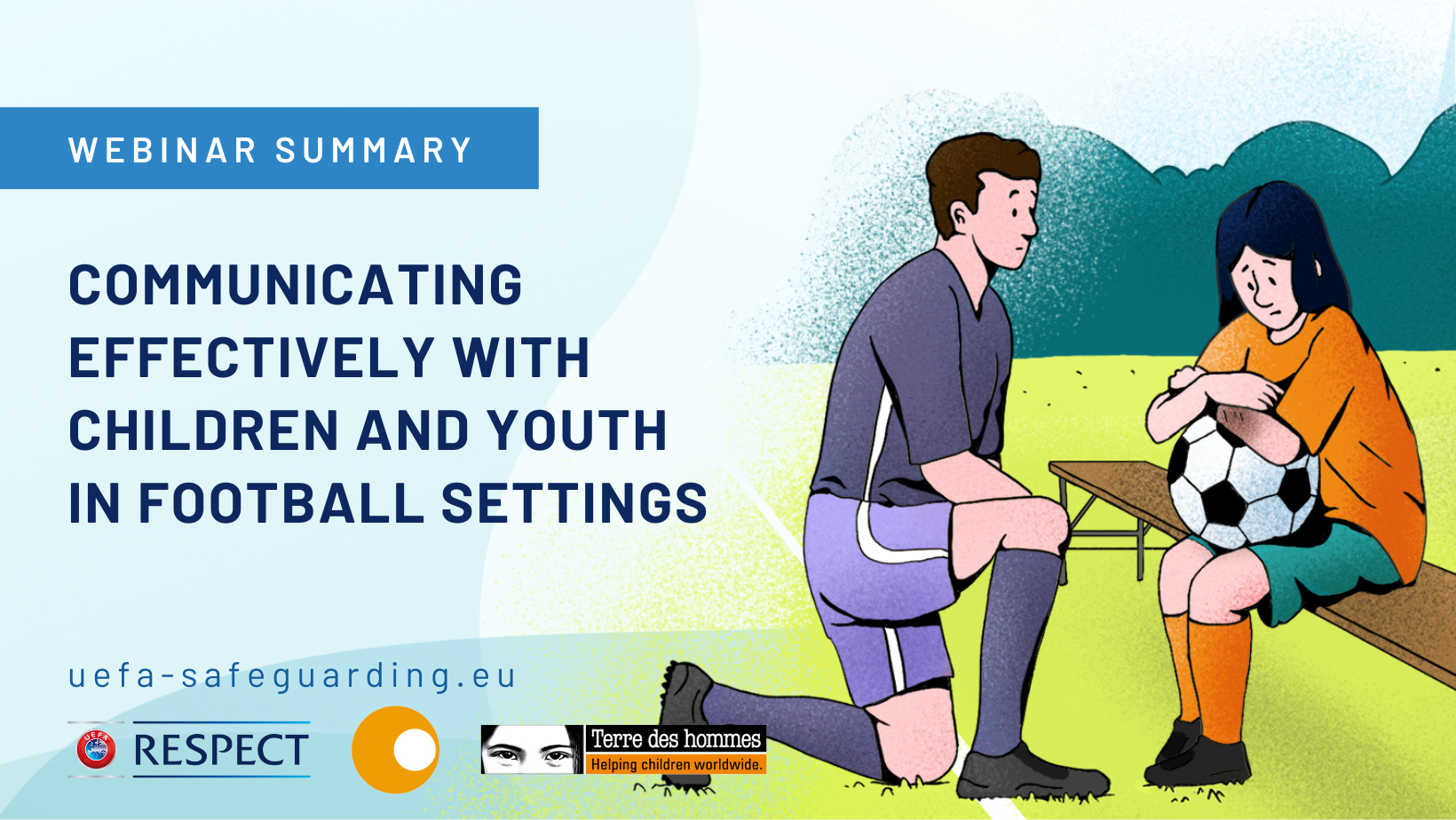
Overview
Adults working with children and young people in football are responsible for ensuring a safe, and empowering environment for all children and youth to play football. This includes planning developmentally appropriate and inclusive opportunities to play and enjoy the game. For this, it is essential to understand the different child and youth development age characteristics and to be able to effectively communicate with children and young people.
On October 12, 2022, UEFA, with the support of Terre des hommes, organised a webinar for UEFA national association child and youth protection officers, grassroots coaches, mentors and/or managers and interested UEFA employees. The webinar introduced the participants to the different child development stages and their characteristics. These differences are important and to be taken into account when interacting with players the under 18 years of age.
Below, we summarize key information from the webinar, which can be useful for grassroots coaches and managers, football schools and educational staff, players, referees and other adults working with children in football, or anyone interested in child and youth protection in football/sports.
Breaking the ice
The webinar started with an exercise, were participants collectively described the profile of the players under 18 years of age - their features, preferences, ambitions. You can see the result in the image below:

The majority of the participants associated the “traits of the under-18 with an active, fun, ambitious and confident kid.
Child Development Theories
Each child development is unique, but the physicians and psychologists have set some key development milestones. There are different theoretical models focusing on different areas:
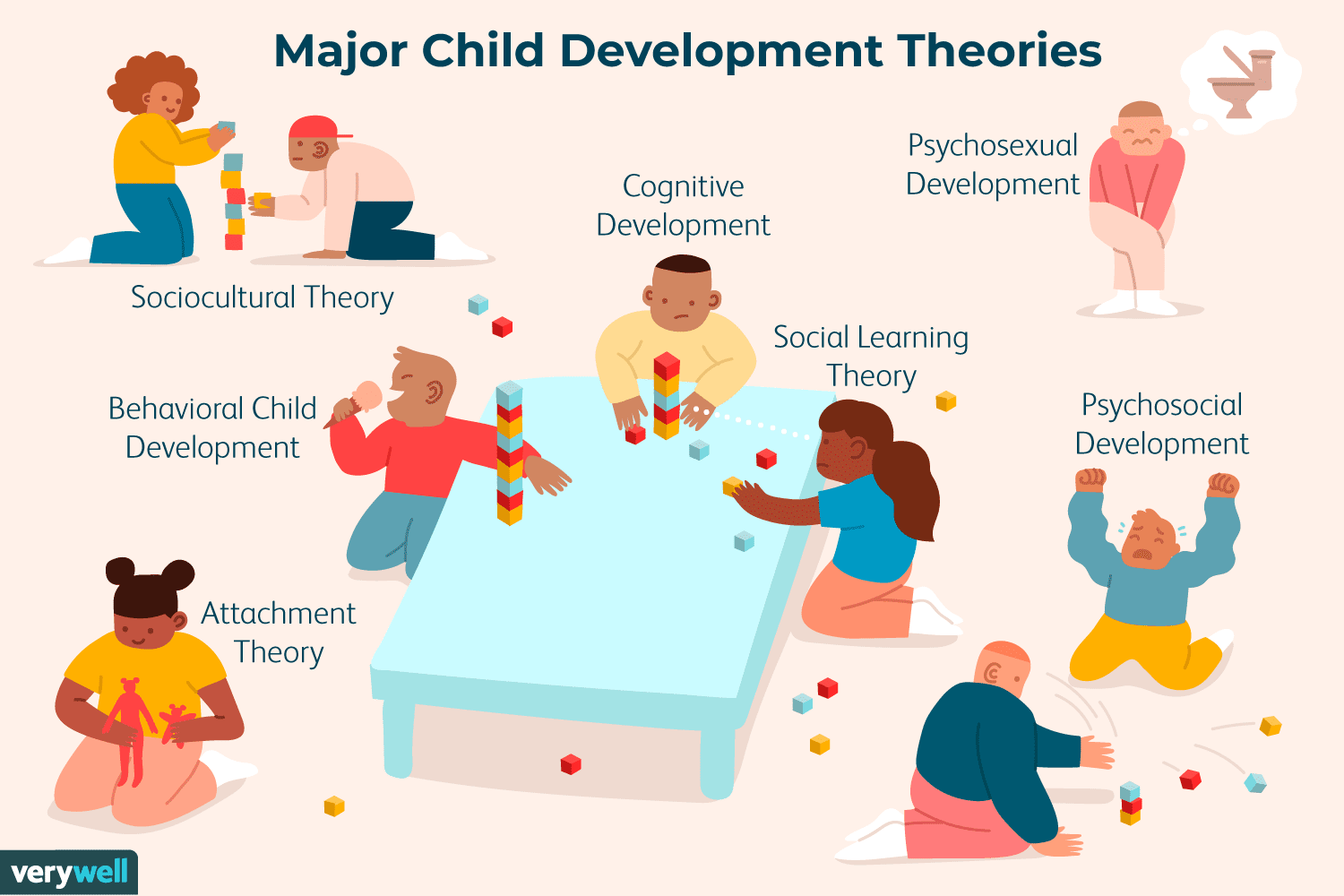
Child development theories focus on explaining how children change and grow over the course of childhood. Such theories centre on various aspects of development including social, emotional, behavioural and cognitive growth.
Psychosexual Developmental Theory
Psychoanalytic theory originated with the work of Sigmund Freud. Through his clinical work with patients suffering from mental illness, Freud came to believe that childhood experiences and unconscious desires influenced behaviour.
Cognitive Development
Cognitive theory is concerned with the development of a person's thought processes. It also looks at how these thought processes influence how we understand and interact with the world. Jean Piaget proposed a theory of cognitive development to account for the steps and sequence of children's intellectual development. There are four stages: Sensorimotor stage (0-2 years old); Pre-operational stage (2-6 years old); Concrete operational stage (7-11 years old); Formal operational stage (12-18 years old).
Behavioural Child Development
Behavioural theories of child development focus on how environmental interaction influences behaviour and is based on the theories of theorists such as John B. Watson, Ivan Pavlov, and B. F. Skinner. These theories deal only with observable behaviours. Development is considered a reaction to rewards, punishments, stimuli, and reinforcement.
Social Learning Theory
Albert Bandura's child development theory suggests that observation plays a critical role in learning, but this observation does not necessarily need to take the form of watching a live model.
Psychosocial Development
Erikson's eight-stage theory of psychosocial development describes growth and change throughout life, focusing on social interaction and conflicts that arise during different stages of development
Attachment Theory
Bowlby's attachment theory suggested that children are born with an innate need to form attachments. Such attachments aid in survival by ensuring that the child receives care and protection. Not only that, but these attachments are characterized by clear behavioural and motivational patterns. Bowlby believed that early relationships with caregivers play a major role in child development andcontinue to influence social relationships throughout life.
Sociocultural Theory
Another psychologist named Lev Vygotsky proposed a seminal learning theory that has gone on to become very influential, especially in the field of education. Like Piaget, Vygotsky believed that children learn actively and through hands-on experiences.
Different age groups of children and their particularities
Most often, children practicing football form the following age groups:
- from 6 to 11 years old
- from 11 to 14 years old
- from 14 to 18 years old.
Each of these groups has its specific particularities. Coaches, physicians and other staff working with children in football settings must know and these them into account while interacting with players.
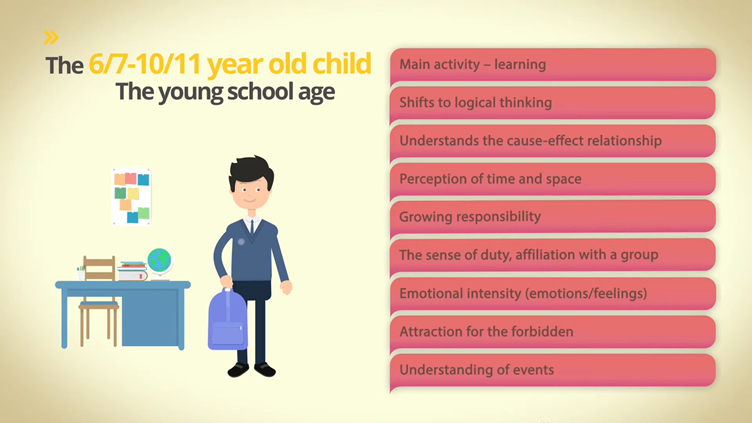
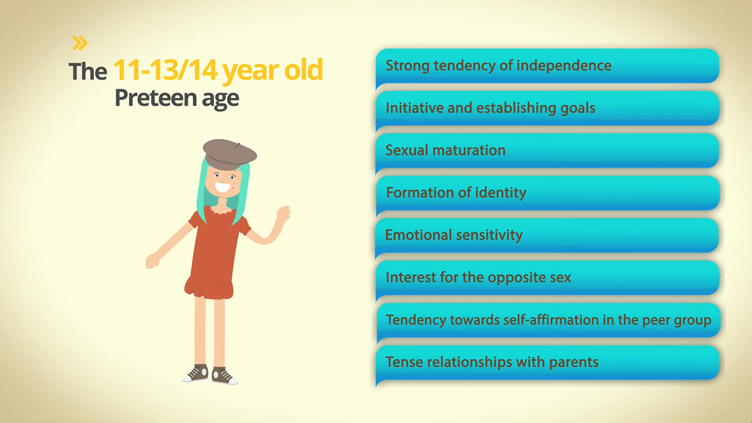
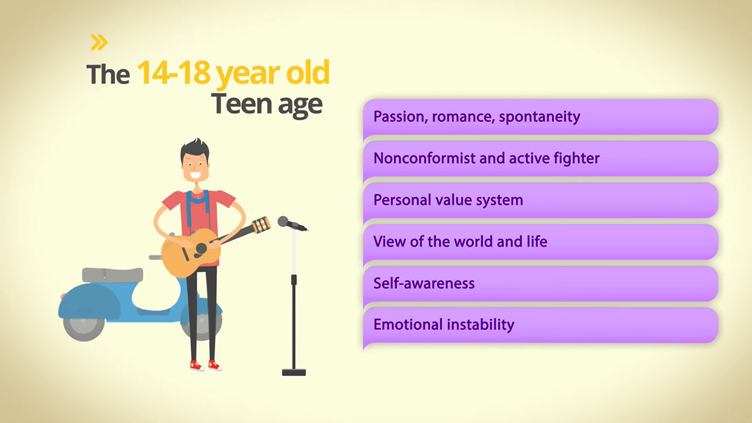
Watch this video to learn in more detail about the age particularities of children.
The influence of peers and sports in children’s development
There are many features of youth sport that can make it exciting and motivating or, alternatively, make it dull, stressful, or otherwise uninviting. Among those features are the participants themselves.
PEERS are individuals of about the same age, such as schoolmates, teammates, or others with roughly equal standing and power.
Three ways that peers matter in sports are:
- Friendship – a one-on-one relationship. When sport friends are supportive, loyal, have things in common, enjoy being together, and manage conflict effectively, the stage is set for a good-quality sport experience the motivation is higher. They want to participate instead of they have to.
- Acceptance – young people generally want to be connected. Achieving peer acceptance and belonging among team-mates. Social goals together with competitive goals. Those who are accepted feel meaningfully connected to others, while those with low acceptance may feel isolated.
- PEER ACCEPTANCE – The degree to which one is accepted by or popular with a group of peers.
- Referencing or PEER REFERENCING – A mental process where individuals compare themselves to others with respect to skills, attitudes and values.
How to communicate with under-18s? The set of skills needed for adults
When it comes to working with children some practical acknowledgements can be made regarding the skills that any professional should be aware of improving or constantly monitoring and developing for an efficient communication with U18 in football settings. There are conventionally four groups of skills:
Personal skills – These skills are not easy to quantify but they are essential for good communication, and a lack of them can seriously hinder your chances of setting up a stable adequate rapport with you group of kids.
Examples:
- manage emotions
- self-confidence
- adapt and be flexible
- critical, creative thinking
- motivation
Social skills are the skills we use to communicate and interact with each other, both verbally and non-verbally, through gestures body language and our personal appearance, as well as capacity to integrate these in your work and operate accordingly.
Examples:
- communication
- teamwork
- show empathy, support, motivate
Methodological skills are a set of skills that mostly answers to the question “how?”. The set of methods and approaches a professional applies in its work.
Examples:
- plan, implement, evaluate
- promote participation and cooperation, etc.
Technical skills are important when one grows its capacity and set of varied tools for working with children.
Examples:
- know theoretical tools for working with children
- have specific tools for professional practice
Practices from the football world: iCoachKids (iCK) Golden Rules for Coaching children
iCoachKids (iCK) is a not-for-profit initiative co-funded by the Erasmus+ programme of the European Commission which aims to support the development of a Specialist Children and Youth Coaching Workforce across the EU. You can find more information here: https://icoachkids.org/
iCK expert group developed 10 Golden Rules for coaching children:
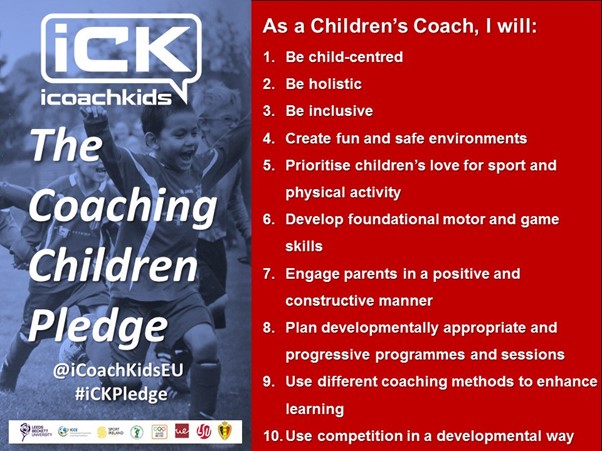
Useful links:
- The UEFA Child Safeguarding platform: https://uefa-safeguarding.eu/
- Article on the ways that peers matter in sports, Three Ways That Peers Matter in Youth Sport · Frontiers for Young Minds (frontiersin.org)
- Tdh video on age characteristics of children: https://youtu.be/7GTSG8jRcSk
- Tdh video on the needs of the child: https://youtu.be/9BC9NwdyNUc
- Nonprofit global movement for youth, coaches and kids, https://icoachkids.org/
